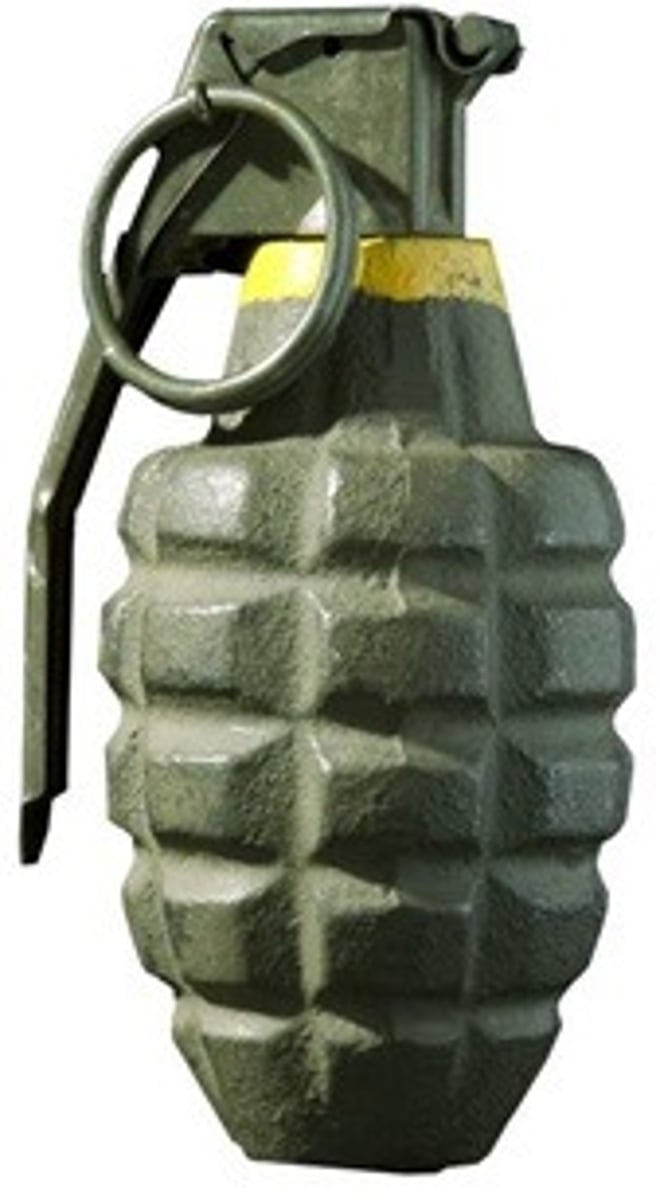Thẻ ghi nhớ: TOPIC ECONOMICS - Vocabulary development 43 | Quizlet
1/82
There's no tags or description
Looks like no tags are added yet.
Name | Mastery | Learn | Test | Matching | Spaced |
|---|
No study sessions yet.
83 Terms
degradation (n)
/ˌdeɡrəˈdeɪʃn/: the process of something being damaged or made worse : sự suy thoái, sự xuống cấp
Eg 1: The degradation of the environment is a serious problem. (Sự suy thoái môi trường là một vấn đề nghiêm trọng.)
Eg 2: Prolonged exposure to sunlight can cause degradation of materials. (Tiếp xúc lâu dài với ánh nắng mặt trời có thể gây suy thoái vật liệu.)
superiority (n)
/suːˌpɪəriˈɒrəti/: the state of being better, more powerful, etc. than others : sự vượt trội, ưu thế
Eg 1: Her sense of superiority made her unpopular among her peers. (Cảm giác vượt trội khiến cô ấy không được lòng đồng nghiệp.)
Eg 2: Military superiority can determine the outcome of a conflict. (Ưu thế quân sự có thể quyết định kết quả của một cuộc xung đột.)
cubic (adj)
/ˈkjuːbɪk/: used to show that a measurement is the volume of something : khối, lập phương
Eg 1: The tank has a capacity of 50 cubic meters. (Bể chứa có dung tích 50 mét khối.)
Eg 2: The new storage facility can hold 200 cubic feet of material. (Khu lưu trữ mới có thể chứa 200 feet khối vật liệu.)
autopsy
(n)/ˈɔːtɒpsi/: an official examination of a dead body to discover the cause of death : cuộc khám nghiệm tử thi
Eg 1: The autopsy revealed the cause of death to be heart failure. (Cuộc khám nghiệm tử thi cho thấy nguyên nhân cái chết là do suy tim.)
Eg 2: An autopsy is scheduled to determine the exact cause of death. (Một cuộc khám nghiệm tử thi được lên kế hoạch để xác định chính xác nguyên nhân cái chết.)

woes
(idiom) the troubles and problems that somebody has
Eg: financial woes
residual
/rɪˈzɪdjuəl/: remaining at the end of a process: còn sót lại, dư thừa
Eg 1: There is still some residual moisture in the soil. (Vẫn còn một ít độ ẩm dư thừa trong đất.)
Eg 2: The residual effects of the drug can last for several hours. (Những ảnh hưởng còn lại của thuốc có thể kéo dài trong vài giờ.)

gigantic
(adj) /dʒaɪˈɡæntɪk/: extremely large : khổng lồ, to lớn
Eg 1: The concert attracted a gigantic crowd. (Buổi hòa nhạc thu hút một đám đông khổng lồ.)
Eg 2: They built a gigantic shopping mall in the city center. (Họ xây dựng một trung tâm mua sắm khổng lồ ở trung tâm thành phố.)

asylum (n)
[C1] /əˈsaɪləm/: protection that a government gives to people who have left their own country, usually because they were in danger for political reasons
to seek/apply for/be granted asylum
There was a nationwide debate on whether the asylum laws should be changed.
repertoire (n)
/ˈrepətwɑː(r)/: all the things a person is able to do: vốn tiết mục
Eg 1: She has a large repertoire of songs. (Cô ấy có một danh mục bài hát phong phú.)
Eg 2: The actor’s repertoire includes both drama and comedy. (Kho tàng của nam diễn viên bao gồm cả kịch và hài kịch.)

psyche (n)
/ˈsaɪki/: the mind; your deepest feelings and attitudes : tâm lý, tinh thần
Eg 1: The experience left a scar on her psyche. (Trải nghiệm đó để lại một vết sẹo trong tâm lý của cô ấy.)
Eg 2: The psyche of a nation can be deeply influenced by its history. (Tâm lý của một quốc gia có thể bị ảnh hưởng sâu sắc bởi lịch sử của nó.)
pedal (v)
/ˈpedl/: to push the pedals of a bicycle or other machine : đạp Eg 1: She pedaled as fast as she could to reach the train station. (Cô ấy đạp nhanh nhất có thể để đến ga tàu.)
Eg 2: He pedaled uphill with great effort. (Anh ấy đạp lên dốc với rất nhiều nỗ lực.)
exemplify (v)
/ɪɡˈzemplɪfaɪ/: to be a typical example of something : làm gương, minh họa
Eg 1: His paintings exemplify the style of the Renaissance /rɪˈneɪsns/ /ˈrenəsɑːns/period. (Những bức tranh của anh ấy minh họa phong cách của thời kỳ Phục Hưng.)
Eg 2: The school exemplifies the best in modern education. (Ngôi trường này là hình mẫu cho những gì tốt nhất trong giáo dục hiện đại.
shuffle
/ˈʃʌfl/: to move in a way that does not seem organized : đi lê bước, di chuyển lúng túng
Eg 1: The team shuffled into the room for the meeting. (Nhóm người vội vã bước vào phòng cho buổi họp.)
Eg 2: He shuffled through the papers on his desk. (Anh ấy lật qua các tài liệu trên bàn một cách lộn xộn.)

storm (v)
/stɔːm/: to go somewhere quickly and in an angry or forceful way : tiến đến một cách mạnh mẽ hoặc giận dữ
Eg 1: He stormed out of the meeting, slamming the door behind him. (Anh ta giận dữ bước ra khỏi cuộc họp, đóng sầm cửa lại.)
Eg 2: Protesters stormed the building in anger. (Những người biểu tình tiến vào tòa nhà một cách tức giận.)

tailor (v)
Eg 1: The course is tailored to suit individual needs. (Khóa học được điều chỉnh để phù hợp với nhu cầu cá nhân.)
Eg 2: He tailored his speech for a younger audience. (Ông ấy điều chỉnh bài phát biểu của mình cho khán giả trẻ hơn.)
marvel (v)
/ˈmɑːvl/: to be very surprised or impressed by something : ngạc nhiên, kinh ngạc
Eg 1: Everyone marveled at her ability to solve the problem. (Mọi người đều kinh ngạc trước khả năng giải quyết vấn đề của cô ấy.)
Eg 2: I marveled at the beauty of the sunset. (Tôi ngạc nhiên trước vẻ đẹp của hoàng hôn.)

ceramic (n)
/səˈræmɪk/: made of clay that has been hardened by heat : gốm
Eg 1: She displayed her collection of ceramic vases. (Cô ấy trưng bày bộ sưu tập bình gốm của mình.)
Eg 2: The museum has a large collection of ancient ceramics. (Bảo tàng có một bộ sưu tập lớn về đồ gốm cổ.)

convene (v)
/kənˈviːn/: to arrange for people to come together for a formal meeting : triệu tập, tổ chức
Eg 1: A board meeting was convened to discuss the matter. (Một cuộc họp hội đồng đã được triệu tập để thảo luận về vấn đề này.)
Eg 2: They decided to convene a summit to address the issue. (Họ quyết định triệu tập một hội nghị thượng đỉnh để giải quyết vấn đề.)

compassionate (adj)
/kəmˈpæʃənət/: feeling or showing sympathy for people who are suffering : nhân ái, thương xót
Eg 1: He was a compassionate man who understood the sufferings of others. (Ông ấy là một người nhân ái, hiểu được nỗi đau của người khác.)E g 2: She made a compassionate decision to forgive him. (Cô ấy đã đưa ra một quyết định nhân ái là tha thứ cho anh ta.)
psychic
/ˈsaɪkɪk/: connected with the mind rather than the body : thuộc về tinh thần, tâm lý
Eg 1: The trauma left him with psychic scars. (Cú sốc để lại cho anh ta những vết thương tâm lý.)
Eg 2: She has a strong psychic connection with her twin sister. (Cô ấy có mối liên hệ tâm lý mạnh mẽ với chị em sinh đôi của mình.)
compute
/kəmˈpjuːt/: to calculate something : tính toán
Eg 1: The computer can compute complex mathematical equations. (Máy tính có thể tính toán các phương trình toán học phức tạp.)
Eg 2: The losses were computed at £5 million. (Các khoản lỗ được tính toán là 5 triệu bảng Anh.)
wrinkle (n)
/ˈrɪŋkl/: a small problem or a slight difficulty : vấn đề nhỏ, sự phức tạp nhỏ
Eg 1: There are still a few wrinkles to iron out in the plan. (Vẫn còn một vài vấn đề nhỏ cần giải quyết trong kế hoạch.)
Eg 2: The contract has some wrinkles that need clarification. (Hợp đồng có vài điểm phức tạp cần làm rõ.)

populace
/ˈpɒpjələs/: all the people who live in a particular country or area : dân chúng
Eg 1: The entire populace is affected by the policy change. (Toàn bộ dân chúng đều bị ảnh hưởng bởi sự thay đổi chính sách.)
Eg 2: The government needs to address the concerns of the populace. (Chính phủ cần giải quyết những lo ngại của dân chúng.)

rebound
/rɪˈbaʊnd/: to bounce back after hitting something, or to have an effect on something : bật ngược trở lại, gây tác động trở lại Eg 1: The ball rebounded off the wall. (Quả bóng bật ngược ra khỏi tường.)
Eg 2: The company's sales have rebounded in recent months. (Doanh số của công ty đã tăng trở lại trong những tháng gần đây.)

bluff (n)
/blʌf/: an attempt to deceive somebody by making them think that you are going to do something : trò lừa phỉnh, mánh khóe Eg 1: It was just a bluff; he had no intention of harming her. (Đó chỉ là một mánh khóe; anh ta không hề có ý định làm hại cô ấy.)
Eg 2: She managed to convince them it was true, but it was all a bluff. (Cô ấy đã thuyết phục họ rằng điều đó là thật, nhưng tất cả chỉ là một mánh khóe.)

slick (adj)
/slɪk/: done or made in a way that is clever and efficient but often not sincere : khéo léo, trơn tru (nhưng đôi khi không chân thật)
Eg 1: The company has a slick marketing campaign. (Công ty có một chiến dịch tiếp thị rất khéo léo.)

onstage (adv)
/ˌɒnˈsteɪdʒ /ˌɑːnˈsteɪdʒ/ on the stage in a theatre; in front of an audience: trên sân khấu
Eg 1: The singer came onstage to loud applause. (Ca sĩ bước lên sân khấu dưới tiếng vỗ tay vang dội.)
Eg 2: The politician appeared onstage to make an announcement. (Nhà chính trị xuất hiện trên sân khấu để đưa ra thông báo.)

pier (n)
/pɪə(r)/: a long structure that is built over the water, used for boats to dock or for people to walk on : bến tàu, cầu tàu
Eg 1: The boat was tied to the pier. (Con thuyền được buộc vào cầu tàu.)
Eg 2: She walked along the pier, watching the sunset. (Cô ấy đi bộ dọc theo cầu tàu, ngắm hoàng hôn.)

make a splash (idiom):
/meɪk ə splæʃ/: to do something in a way that attracts a lot of attention or causes a lot of excitement : gây chú ý, tạo ấn tượng mạnh
Eg 1: The new movie made a splash at the box office. (Bộ phim mới tạo ra ấn tượng mạnh tại phòng vé.)
Eg 2: Her performance at the competition made quite a splash. (Màn trình diễn của cô ấy tại cuộc thi đã gây ấn tượng mạnh.)
breach (v)
[C1] /briːtʃ/: to break a law, promise, or agreement : vi phạm, phá vỡ
Eg 1: The company was sued for breaching its contract. (Công ty bị kiện vì vi phạm hợp đồng.)
Eg 2: He was accused of breaching the peace. (Anh ta bị buộc tội vi phạm trật tự công cộng.)
![<p>[C1] /briːtʃ/: to break a law, promise, or agreement : vi phạm, phá vỡ </p><p>Eg 1: The company was sued for breaching its contract. (Công ty bị kiện vì vi phạm hợp đồng.) </p><p>Eg 2: He was accused of breaching the peace. (Anh ta bị buộc tội vi phạm trật tự công cộng.)</p>](https://knowt-user-attachments.s3.amazonaws.com/be5ca862-a304-4ad2-ba08-205a9ed9584b.jpg)
ideally (adv)
/aɪˈdɪəlɪ/: in a perfect or best possible situation : lý tưởng
Eg 1: Ideally, everyone would have access to free healthcare. (Lý tưởng là, mọi người đều có quyền tiếp cận dịch vụ chăm sóc sức khỏe miễn phí.)
Eg 2: Ideally, we would finish the project by the end of the month. (Lý tưởng là, chúng ta sẽ hoàn thành dự án vào cuối tháng.)
dispute (n)
[C1] /dɪˈspjuːt/: an argument or disagreement, often a formal one : tranh chấp, mâu thuẫn
Eg 1: The two sides are in dispute over the terms of the contract. (Hai bên đang tranh cãi về các điều khoản của hợp đồng.)
Eg 2: There was a dispute between the workers and management over pay. (Có một cuộc tranh chấp giữa công nhân và ban quản lý về lương.)
![<p>[C1] /dɪˈspjuːt/: an argument or disagreement, often a formal one : tranh chấp, mâu thuẫn </p><p>Eg 1: The two sides are in dispute over the terms of the contract. (Hai bên đang tranh cãi về các điều khoản của hợp đồng.) </p><p>Eg 2: There was a dispute between the workers and management over pay. (Có một cuộc tranh chấp giữa công nhân và ban quản lý về lương.)</p>](https://knowt-user-attachments.s3.amazonaws.com/3a09f040-05bc-4943-88b6-20010792495f.jpg)
singular
/ˈsɪŋɡjʊlər/ referring to one person or thing; unique : đơn lẻ, độc đáo
Eg 1: She had a singular talent for music. (Cô ấy có tài năng đặc biệt về âm nhạc.)
Eg 2: The singular focus of the campaign was to promote renewable energy. (Mục tiêu duy nhất của chiến dịch là thúc đẩy năng lượng tái tạo.)

tablet
/ˈtæblət/: a small, flat computer that is operated by touching the screen : máy tính bảng
Eg 1: He read the news on his tablet. (Anh ấy đọc tin tức trên máy tính bảng của mình.)
Eg 2: The children were playing educational games on their tablets. (Những đứa trẻ đang chơi các trò chơi giáo dục trên máy tính bảng của chúng.)

resort (v)
/rɪˈzɔːt/: to turn to something as a final option after other alternatives have been exhausted : phải viện đến
Eg 1: She had to resort to asking for help when she couldn't finish the task. (Cô ấy phải nhờ sự giúp đỡ khi không thể hoàn thành công việc.)
Eg 2: They resorted to using social media to raise awareness. (Họ đã phải dùng đến mạng xã hội để nâng cao nhận thức.)

prowess (n)
/ˈpraʊəs/: great skill or ability in a particular field : khả năng xuất sắc
Eg 1: Her economic prowess is admired worldwide. (Khả năng kinh tế của cô ấy được ngưỡng mộ trên toàn thế giới.)
Eg 2: He showed great prowess as a negotiator. (Anh ấy thể hiện kỹ năng xuất sắc như một nhà đàm phán.)
channel (v)
[ideas/ feelings] to direct money, feelings, ideas, etc. towards a particular thing or purpose
Eg: He channels his energies into sport.
polish (v)
/ˈpɒlɪʃ/: to improve a skill by practicing : trau dồi, làm hoàn thiện
Eg 1: She polished her writing skills by taking an advanced course. (Cô ấy trau dồi kỹ năng viết của mình bằng cách tham gia một khóa học nâng cao.)
Eg 2: He spent hours polishing his speech before the presentation. (Anh ấy dành hàng giờ để trau chuốt bài phát biểu trước buổi thuyết trình.)
squat
/skwɒt/: to occupy a place, especially without permission : chiếm đóng, chiếm giữ
Eg 1: The protesters squatted in the empty buildings. (Những người biểu tình chiếm đóng các tòa nhà trống.)
Eg 2: They squatted on the land for years without any legal rights. (Họ chiếm giữ mảnh đất trong nhiều năm mà không có quyền hợp pháp.)
sediment
/ˈsedɪmənt/: material that settles at the bottom of a liquid or is deposited by water, wind, or ice : trầm tích
Eg 1: The river carried large amounts of sediment. (Con sông mang theo lượng lớn trầm tích.)
Eg 2: The wine had a layer of sediment at the bottom of the bottle. (Rượu có một lớp trầm tích ở đáy chai.)

attribution
/ˌætrɪˈbjuːʃn/: the act of saying or believing that something is the result of a particular thing : sự quy cho, sự gán ghép
Eg 1: The attribution of his success to hard work is well deserved. (Việc gán thành công của anh ấy cho sự chăm chỉ là hoàn toàn xứng đáng.)
Eg 2: This painting’s attribution to Van Gogh is widely accepted. (Việc gán bức tranh này cho Van Gogh được chấp nhận rộng rãi.)
chair (v)
/tʃeə(r)/: to act as the leader of a meeting, discussion, or group : chủ trì, dẫn dắt
Eg 1: She chaired the committee meeting yesterday. (Cô ấy chủ trì cuộc họp của ủy ban ngày hôm qua.)
Eg 2: Who is going to chair the next session? (Ai sẽ chủ trì phiên họp tiếp theo?)

succumb
/səˈkʌm/: to fail to resist something, especially something strong or harmful : chịu thua, đầu hàng
Eg 1: The city succumbed to the invading forces after a long siege. (Thành phố đã đầu hàng trước lực lượng xâm lược sau một cuộc vây hãm dài.)
Eg 2: She succumbed to temptation and had a second piece of cake. (Cô ấy không cưỡng lại được cám dỗ và ăn thêm một miếng bánh nữa.)

evaporate (v)
/ɪˈvæpəreɪt/: to disappear, especially quickly : bay hơi, tan biến
Eg 1: The early morning mist evaporated as the sun rose. (Sương sớm tan biến khi mặt trời mọc.)
Eg 2: Their initial enthusiasm soon evaporated. (Sự nhiệt tình ban đầu của họ nhanh chóng tan biến.)

simulate (v)
/ˈsɪmjuleɪt/: to create conditions similar to something that exists in reality : mô phỏng
Eg 1: The device simulates conditions in space. (Thiết bị mô phỏng các điều kiện trong không gian.)
Eg 2: The computer game simulates real-life driving. (Trò chơi máy tính mô phỏng việc lái xe thực tế.)

grenade (n)
/ɡrəˈneɪd/: a small bomb that can be thrown by hand or fired from a weapon : lựu đạn
Eg 1: He pulled the pin on the grenade and threw it. (Anh ấy rút chốt lựu đạn và ném đi.)
Eg 2: The soldiers used grenades to clear the enemy bunker. (Những người lính đã sử dụng lựu đạn để dọn sạch hầm trú của kẻ thù.)

regimen (n)
/ˈredʒɪmən/: a set of rules about food, exercise, or medical treatment that you follow to stay healthy : chế độ, quy trình
Eg 1: She follows a strict fitness regimen. (Cô ấy tuân theo một chế độ tập luyện nghiêm ngặt.)
Eg 2: His doctor put him on a regimen of medication and rest. (Bác sĩ kê cho anh ấy một chế độ dùng thuốc và nghỉ ngơi.)

stringent (adj)
/ˈstrɪndʒənt/: very strict and that must be obeyed : nghiêm ngặt, chặt chẽ
Eg 1: The school has stringent rules regarding dress code. (Trường có các quy định nghiêm ngặt về trang phục.)
Eg 2: There are stringent safety measures in place at the factory. (Có các biện pháp an toàn nghiêm ngặt được thực hiện tại nhà máy.)

incumbent (adj)
/ɪnˈkʌmbənt/: having an official position : đương nhiệm
Eg 1: The incumbent president is seeking re-election. (Tổng thống đương nhiệm đang tìm kiếm tái tranh cử.)
Eg 2: It is incumbent on the manager to ensure that all employees are trained properly. (Đó là trách nhiệm của người quản lý để đảm bảo rằng tất cả nhân viên được đào tạo đầy đủ.)
radioactive
/ˌreɪdiəʊˈæktɪv/: giving off energy in the form of particles or waves that can harm people : thuộc phóng xạ
Eg 1: The area was contaminated with radioactive waste. (Khu vực bị ô nhiễm bởi chất thải phóng xạ.)
Eg 2: The scientists were researching the effects of radioactive materials. (Các nhà khoa học đang nghiên cứu ảnh hưởng của các vật liệu phóng xạ.)
outreach
/ˈaʊtriːtʃ/: the activity of making contact with people who need help : sự tiếp cận, mở rộng
Eg 1: The charity’s outreach program helps homeless people. (Chương trình tiếp cận của tổ chức từ thiện giúp đỡ những người vô gia cư.)
Eg 2: Their outreach efforts focused on underprivileged communities. (Những nỗ lực tiếp cận của họ tập trung vào các cộng đồng khó khăn.)
proceeds
[C1] /ˈprəʊsiːdz/: the money that you receive when you sell something or organize an event : tiền thu được
Eg 1: The proceeds from the concert will go to charity. (Số tiền thu được từ buổi hòa nhạc sẽ được dùng để làm từ thiện.)
Eg 2: All proceeds of the auction were donated to the hospital. (Toàn bộ số tiền thu được từ buổi đấu giá đã được quyên góp cho bệnh viện.)
![<p>[C1] /ˈprəʊsiːdz/: the money that you receive when you sell something or organize an event : tiền thu được </p><p>Eg 1: The proceeds from the concert will go to charity. (Số tiền thu được từ buổi hòa nhạc sẽ được dùng để làm từ thiện.) </p><p>Eg 2: All proceeds of the auction were donated to the hospital. (Toàn bộ số tiền thu được từ buổi đấu giá đã được quyên góp cho bệnh viện.)</p>](https://knowt-user-attachments.s3.amazonaws.com/eec4b64d-bafb-4a79-aa42-0ecd18895f7d.jpg)
stellar
/ˈstelə(r)/:
+ excellent; very good: xuất sắc, tuyệt vời
+ connected with the stars
Eg 1: She gave a stellar performance in the play. (Cô ấy đã có một màn trình diễn xuất sắc trong vở kịch.)
Eg 2: His stellar reputation as a scientist earned him the award. (Danh tiếng xuất sắc của anh ấy như một nhà khoa học đã mang lại cho anh giải thưởng.)
catalyst
(n) /ˈkætəlɪst/: a person or thing that causes a change : chất xúc tác
Eg 1: The new teacher was a catalyst for change in the school. (Giáo viên mới là chất xúc tác cho sự thay đổi trong trường học.)
Eg 2: Her speech was a catalyst for a wave of protests. (Bài phát biểu của cô ấy là chất xúc tác cho một làn sóng biểu tình.)

fetus (n)
/ˈfiːtəs/: an unborn animal or human being in the later stages of development : bào thai
Eg 1: The fetus develops rapidly during the third trimester. (Bào thai phát triển nhanh chóng trong tam cá nguyệt thứ ba.)
Eg 2: Smoking can harm the developing fetus. (Hút thuốc có thể gây hại cho bào thai đang phát triển.)

extremist (n)
/ɪkˈstriːmɪst/: someone who holds extreme political or religious views: người cực đoan
Eg 1: The group was associated with extremist views on immigration. (Nhóm này gắn liền với quan điểm cực đoan về vấn đề nhập cư.)
Eg 2: Extremist factions are trying to destabilize the government. (Các phe phái cực đoan đang cố gắng làm mất ổn định chính phủ.)
contour (n)
/ˈkɒntʊə(r)/: the shape of the outer edges of something : đường viền, đường nét
Eg 1: The artist drew the contours of the mountain. (Họa sĩ vẽ đường nét của ngọn núi.)
Eg 2: Her face had soft contours that made her look youthful. (Khuôn mặt cô ấy có những đường nét mềm mại khiến cô trông trẻ trung.)

whine
/waɪn/: to complain in an annoying way : phàn nàn, rên rỉ
Eg 1: Stop whining and get on with your work! (Ngừng than phiền và tiếp tục làm việc đi!)
Eg 2: She whined about the long wait. (Cô ấy phàn nàn về việc phải chờ đợi lâu.)

perpetrator (n)
/ˈpɜːpətreɪtə(r)/: a person who commits a crime or does something wrong: thủ phạm
Eg 1: The perpetrators of the attack have not been caught. (Những kẻ thực hiện vụ tấn công vẫn chưa bị bắt.)
Eg 2: She tried to identify the perpetrator of the theft. (Cô ấy cố gắng xác định thủ phạm của vụ trộm.)

wardrobe
/ˈwɔːdrəʊb/: a person's collection of clothes: bộ sưu tập quần áo (nghĩa bóng: sự thay đổi phong cách hoặc chính sách)
Eg 1: She updated her wardrobe for the summer. (Cô ấy làm mới tủ đồ cho mùa hè.)
Eg 2: The company decided to change its wardrobe of marketing strategies. (Công ty quyết định thay đổi phong cách chiến lược tiếp thị.)
guff (n)
/ɡʌf/: silly talk or ideas : lời lẽ vô ích, nhảm nhí
Eg 1: Ignore his guff—he doesn’t know what he’s talking about. (Bỏ qua những lời nhảm nhí của anh ta—anh ta chẳng biết mình đang nói gì.)
Eg 2: The speech was full of guff that didn't address the real issues. (Bài phát biểu đầy những lời nhảm nhí mà không giải quyết vấn đề thực sự.)

cut through the grease
(idiom): to overcome difficulties, especially bureaucracy, to achieve a result : vượt qua trở ngại (thường là hệ thống quan liêu)
Eg 1: The new manager was hired to cut through the grease and improve efficiency. (Người quản lý mới được thuê để vượt qua sự phức tạp và cải thiện hiệu quả.)
Eg 2: She managed to cut through the grease and get the permits quickly. (Cô ấy đã vượt qua sự rườm rà và lấy được giấy phép nhanh chóng.)
imaginative (adj)
/ɪˈmædʒɪnətɪv/: having or showing new and exciting ideas : sáng tạo, giàu trí tưởng tượng
Eg 1: The author is known for her imaginative storytelling. (Tác giả được biết đến với cách kể chuyện sáng tạo.)
Eg 2: They designed an imaginative plan to solve the issue. (Họ đã thiết kế một kế hoạch sáng tạo để giải quyết vấn đề.)
doctoral (adj)
/ˈdɒktərəl/: connected with a doctorate (= the highest degree given by a university) : liên quan đến bằng tiến sĩ
Eg 1: She is pursuing doctoral studies in physics. (Cô ấy đang theo học nghiên cứu tiến sĩ ngành vật lý.)
Eg 2: His doctoral thesis focused on renewable energy. (Luận án tiến sĩ của anh ấy tập trung vào năng lượng tái tạo.)
pathetic
/pəˈθetɪk/: making you feel sad or disappointed : đáng thương, tồi tệ
Eg 1: The team gave a pathetic performance in the final. (Đội đã có một màn trình diễn tồi tệ trong trận chung kết.)
Eg 2: Her effort to apologize was simply pathetic. (Nỗ lực xin lỗi của cô ấy thật đáng thương.)

mercury (n)
/ˈmɜːkjəri/: a chemical element that is a heavy, silver-colored metal, liquid at normal temperatures : thủy ngân
Eg 1: Mercury is used in some thermometers. (Thủy ngân được sử dụng trong một số nhiệt kế.)
Eg 2: Mercury poisoning can cause serious health problems. (Nhiễm độc thủy ngân có thể gây ra các vấn đề sức khỏe nghiêm trọng.)

decay
/dɪˈkeɪ/: the process of becoming worse or less powerful: sự suy thoái, hư hỏng
Eg 1: The decay of the old building was evident. (Sự xuống cấp của tòa nhà cũ rất rõ ràng.)
Eg 2: The economy showed signs of decay after the crisis. (Nền kinh tế có dấu hiệu suy thoái sau khủng hoảng.)

silhouette (n)
/ˌsɪluˈet/: the dark shape or outline of something against a lighter background : hình bóng, đường nét
Eg 1: The silhouette of the tree was visible against the moonlight. (Hình bóng của cái cây hiện rõ dưới ánh trăng.)
Eg 2: The painting captures the silhouette of the city skyline. (Bức tranh khắc họa đường nét của đường chân trời thành phố.)

confide (v)
/kənˈfaɪd/: to tell somebody secrets and personal information because you feel you can trust them: tin tưởng, thổ lộ
Eg 1: She confided her fears to her best friend. (Cô ấy thổ lộ những nỗi sợ của mình với người bạn thân nhất.)
Eg 2: He confided to me that he was worried about the decision. (Anh ấy tâm sự với tôi rằng anh lo lắng về quyết định đó.)

portrayal (n)
/pɔːˈtreɪəl/: the act of showing or describing somebody/something in a book, painting, play, etc. : sự mô tả, sự thể hiện
Eg 1: The movie's portrayal of the king was highly accurate. (Bộ phim mô tả nhà vua rất chính xác.)
Eg 2: His portrayal of the character was praised by critics. (Sự thể hiện nhân vật của anh ấy được các nhà phê bình khen ngợi.)
pinch (v)
/pɪntʃ/: to take a small amount of something, especially between your fingers : tiết kiệm, vắt kiệt hoặc bấu
Eg 1: Families had to pinch pennies during the recession. (Các gia đình phải tiết kiệm từng đồng trong thời kỳ suy thoái.)
Eg 2: He pinched a bit of salt to add to the recipe. (Anh ấy nhón một ít muối để thêm vào công thức.)
villain (n)
/ˈvɪlən/: a bad person who harms other people or breaks the law : kẻ phản diện, kẻ xấu
Eg 1: He played the villain in the movie. (Anh ấy đóng vai phản diện trong bộ phim.)
Eg 2: The villain of the story eventually gets punished. (Kẻ phản diện trong câu chuyện cuối cùng cũng bị trừng phạt.)
shaky (adj)
/ˈʃeɪki/: not steady, likely to fail or change : không ổn định, dễ lung lay
Eg 1: The table is a bit shaky. (Cái bàn hơi lung lay.)
Eg 2: The company’s financial position remains shaky. (Tình hình tài chính của công ty vẫn không ổn định.)
bowl somebody over (phr.v)
/bəʊl əʊvə(r)/: (phrasal verb) to surprise or impress somebody a lot : làm cho kinh ngạc, đánh bại hoàn toàn
Eg 1: The beauty of the scenery bowled us over. (Vẻ đẹp của phong cảnh đã làm chúng tôi kinh ngạc.)
Eg 2: She was bowled over by the fantastic performance. (Cô ấy đã bị ấn tượng mạnh bởi màn trình diễn tuyệt vời.)
capitalize on/ upon something(v)
/ˈkæpɪtəlaɪz/: to gain a financial advantage from something : tận dụng, lợi dụng
Eg 1: The company capitalized on its reputation to expand its market. (Công ty tận dụng danh tiếng của mình để mở rộng thị trường.)
Eg 2: He failed to capitalize on the opportunity to improve his skills. (Anh ấy đã không tận dụng cơ hội để cải thiện kỹ năng của mình.)
bail out (phr.v)
/beɪl aʊt/: (phrasal verb) to rescue somebody from a difficult situation, especially financial problems : cứu trợ, giải cứu
Eg 1: The government decided to bail out the failing bank. (Chính phủ quyết định cứu trợ ngân hàng đang gặp khó khăn.) Eg 2: She bailed him out when he couldn't pay his rent. (Cô ấy đã giúp anh ta khi anh không thể trả tiền thuê nhà.)
deliberation (n)
/dɪˌlɪbəˈreɪʃn/: the process of carefully considering or discussing something : sự cân nhắc, thảo luận kỹ lưỡng
Eg 1: After hours of deliberation, the committee reached a decision. (Sau nhiều giờ cân nhắc, ủy ban đã đưa ra quyết định.)
Eg 2: His actions showed a lack of deliberation. (Hành động của anh ấy cho thấy thiếu sự cân nhắc kỹ lưỡng.)
podium (n)
/ˈpəʊdiəm/: a small platform that a person stands on when giving a speech or conducting an orchestra : bục diễn thuyết Eg 1: The speaker walked up to the podium to address the audience. (Diễn giả bước lên bục để phát biểu với khán giả.) Eg 2: She received her award on the winner’s podium. (Cô ấy nhận giải thưởng của mình trên bục vinh quang.)
outset (n)
/ˈaʊtset/: the start or beginning of something : khởi đầu, bắt đầu
Eg 1: From the outset, she made her intentions clear. (Ngay từ đầu, cô ấy đã nói rõ ý định của mình.)
Eg 2: It was obvious at the outset that the project would succeed. (Ngay từ đầu, rõ ràng dự án này sẽ thành công.)

jeopardize
/ˈdʒepədaɪz/: to risk harming or destroying something/somebody : gây nguy hiểm, đe dọa = endanger
Eg 1: He would never do anything to jeopardize his career. (Anh ấy sẽ không bao giờ làm điều gì để gây nguy hiểm cho sự nghiệp của mình.)
Eg 2: The incident could jeopardize relations between the two countries. (Vụ việc có thể làm tổn hại mối quan hệ giữa hai quốc gia.)

judiciously (adv)
/dʒuˈdɪʃəsli/: in a way that shows good judgment : một cách khôn ngoan, hợp lý
Eg 1: Resources must be judiciously allocated to ensure efficiency. (Các nguồn lực phải được phân bổ một cách hợp lý để đảm bảo hiệu quả.)
Eg 2: She spent her money judiciously to avoid waste. (Cô ấy sử dụng tiền một cách khôn ngoan để tránh lãng phí.)

sprout (v)
/spraʊt/: to start to grow; to produce new leaves, buds, etc. : nảy mầm, phát triển
Eg 1: The seeds are beginning to sprout. (Hạt giống bắt đầu nảy mầm.)
Eg 2: New businesses are sprouting up everywhere. (Các doanh nghiệp mới đang mọc lên khắp nơi.)
Đang học (82)
Bạn đã bắt đầu học những thuật ngữ này. Tiếp tục phát huy nhé!